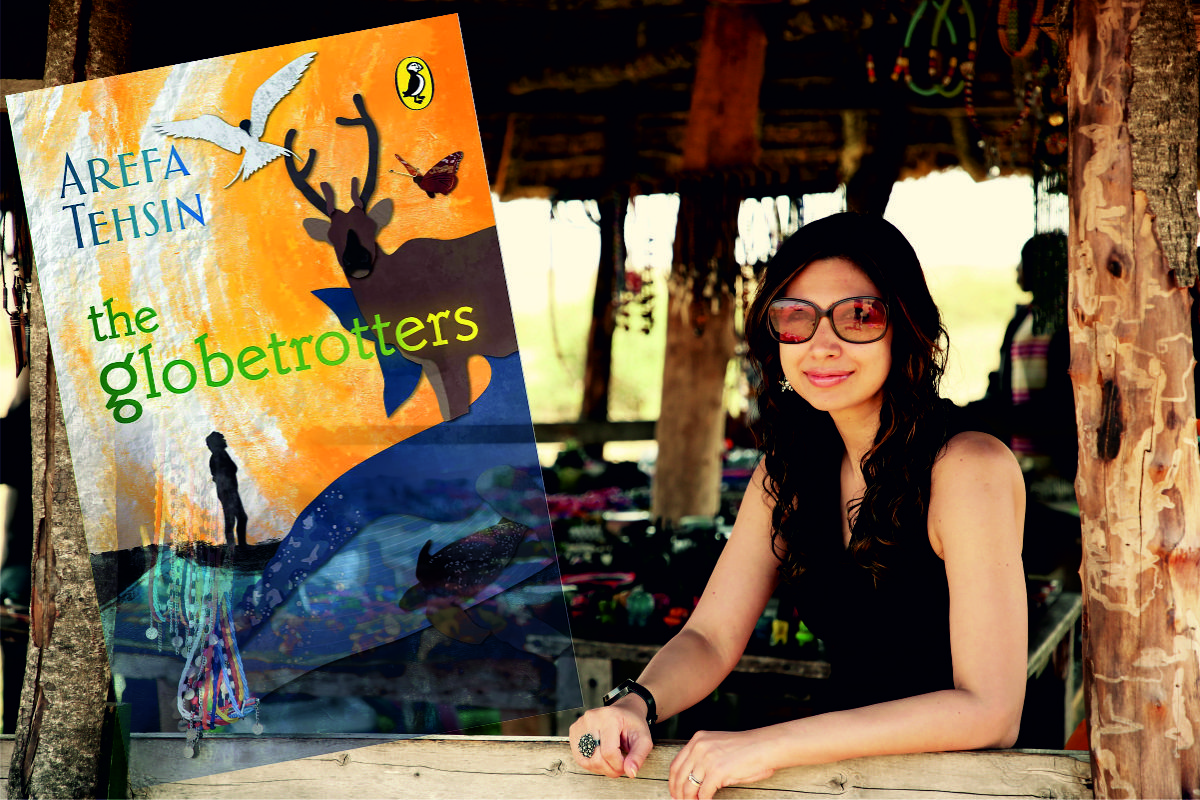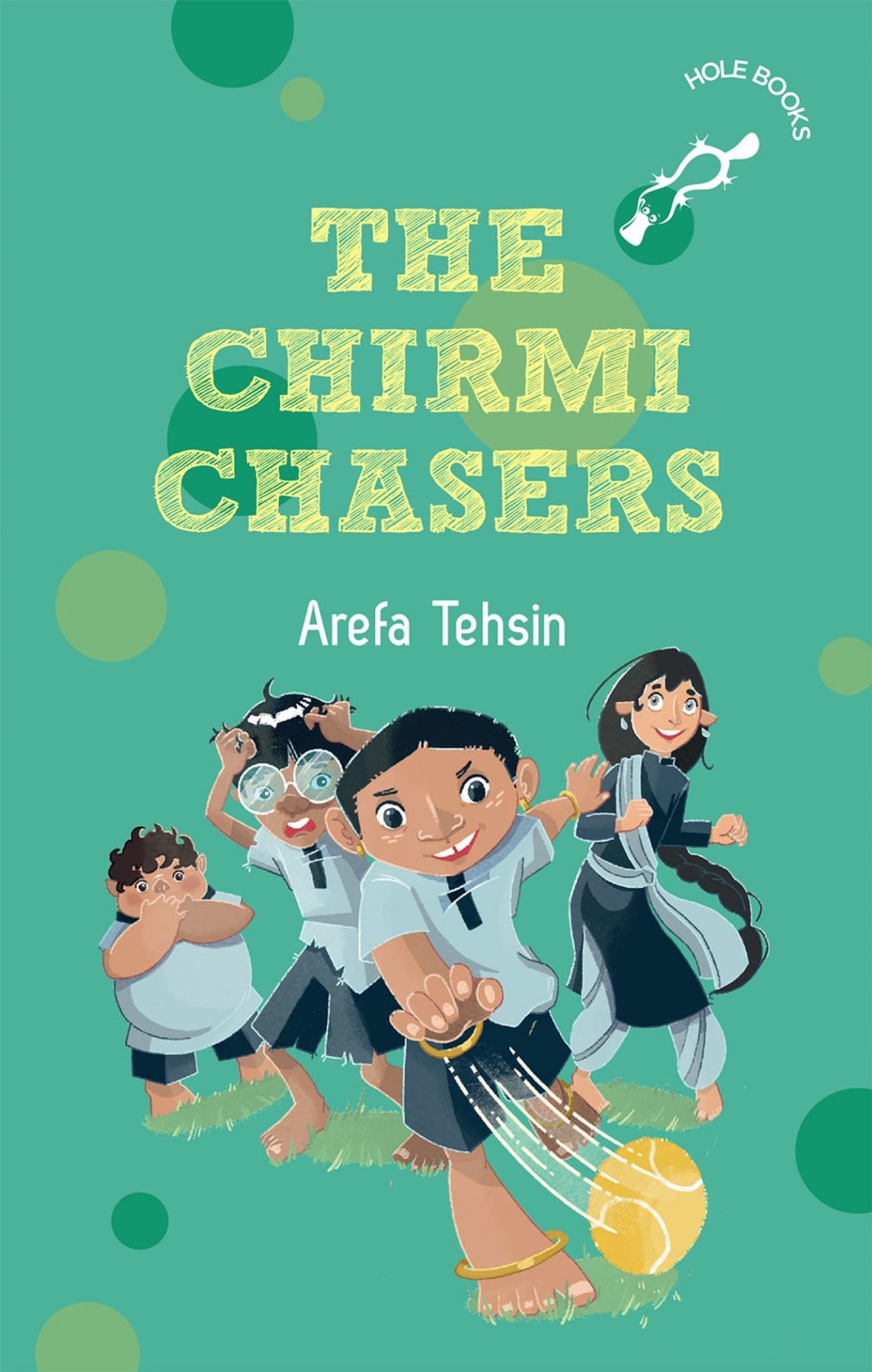
Each time a story is told for children, a little nugget of intellectual innocence and truthfulness is added to the world. It swerves humankind towards a more enlightened prospect.
Arefa Tehsin has steered us in this direction quite a few times with her handful of children’s books – The Chirmi Chasers, Amra and the Witch, Globetrotters. In an interview with Shruti Kohli, Managing Editor, Kunzum, Arefa talks about what it’s like to tell stories for children, how is it different from writing for adults and how has the changed publishing landscape impacted writing.
Shruti: Is storytelling for children more challenging, demanding?
Arefa: I don’t find writing for children challenging at all. It is, in fact, effortless, even if it is on difficult issues.
Shruti: The reader seems to be getting more difficult to please. It’s not necessary that the book which is approved by an awards jury will win good reviews from readers as well. How, in such a scenario, has the author changed her narrative? Has it affected the style of storytelling at all?
Arefa: Personally, I write the story for myself. If I enjoy the tale and its telling, I hope the reader will as well. It has not affected my style of narration.
Shruti: With publishing becoming easier, more people are writing books these days. This also ensures more readers. It also means more literature. Is this also uplifting literature itself? The quality of language, narration…
Arefa: More literature is always good. Self-publishing has opened up avenues and widened possibilities and it has done wonders for some books. However, I feel a book/literature is richer with a good team backing it. A seasoned editor can improve the story and its narration substantially. The creatives and marketing bring a lot to the table. With a good team, a story feels more belonged and groomed like a bride. And, I assume, would be more appealing to a reader too.
With a good team, a story feels more belonged and groomed like a bride.
Shruti: How did publishing your first book change your process of writing?
Arefa: Getting published didn’t change the process much. My partner Aditya always told me to keep writing. Publishing was incidental, he said. I am constantly learning as I write more and more.
Shruti: If you had to do something differently as a child or teenager to become a better writer as an adult, what would you do?
Arefa: I had a wild imagination as a child. I would spin yarns and narrate them to my friends and younger brother Saadat. I don’t think I would want to do anything differently.
Shruti: How do you research for your books?
Arefa: I read books. Research online. Speak to experts. Or just speak to people who would know more about the subject.

Shruti: Fiction is more about real experiences than fiction itself. How often have you used your own past personal experiences in stories? Like your book, The Chirmi Chasers, revolves around a game that many kids, who grew up in the decades as recent as the 1980s, have played at least once if not more.
Arefa: My uncle Rajnikant Verma, who was a writer himself, said writing should be drawn from real life experiences, even if it is fantasy. I have completed writing a 6-novel fantasy series based in a rainforest, and even for that I have drawn a lot from my experiences of visiting forests with my naturalist father and growing up with animals.
Shruti: As a child, which was that one book you would never put down no matter how many times you had read it?
Arefa: Tintin!
Shruti: Are you working on a new book? What is it about and is it also for kids?
Arefa: I have completed writing my first adult novel ‘Witch on the Peepul Tree’, a murder mystery based over a single day in 1950 and told from the perspective of a landlord, a Muslim widow, a middleman, an untouchable and a tribal. I have just begun writing another novel for adults based in India and Sri Lanka.
Shruti: How is writing for adults different from writing for children? What did you change in your style while writing ‘Witch on the Peepul Tree’?
Arefa: Writing for adults is entirely different. It requires more dwelling on, pondering, pausing and reflecting upon. It is pleasure of a different kind.
…writing should be drawn from real life experiences, even if it is fantasy.
